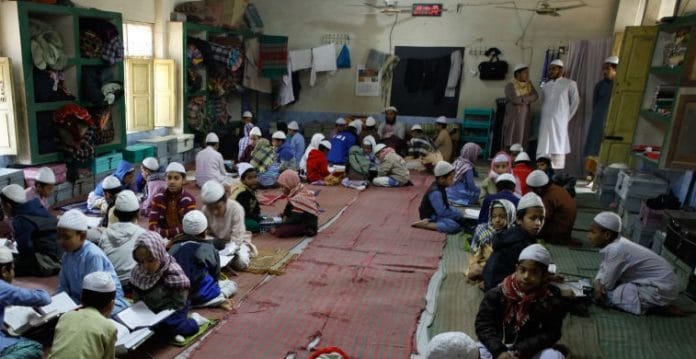Plan is at ‘embryonic stage’ but minority affairs ministry hopes project will instil sense of ‘modernity’ among madrasa teachers
New Delhi: The Narendra Modi government is in talks with a few IIMs, the Aligarh Muslim University (AMU) and Jamia Millia Islamia to initiate an executive development programme (EDP) for madrasa teachers across the country.
“In order to instil a sense of belonging and modernity among madrasa teachers, we are in talks with these premier institutes to train the teachers,” Rizwanur Rahman, secretary of the Maulana Azad Education Foundation, which comes under the Minority Affairs ministry, told ThePrint.
Also read: What defines Modi-ism? Politically potent racism against Indian Muslims
While the talks are still at “an embryonic stage,” the foundation is expected to get a confirmation in the next few days.
The EDP will consist of training in teaching methodology, assessment skills and leadership skills, Rahman said. “Who is better equipped to train madrasa teachers in leadership skills than the faculty at IIMs?”
Although the programme will be funded by the Ministry of Minority Affairs, Rahman said that it is not expected to cost much.
“It is very important that the teachers at madrasas keep up with the modern ways, and shake themselves out of their parochial mindset,” Rahman said. “This is important because even now, madrasas are the primary source of education for the Muslim community.”
The institutes are expected to finalise the draft curriculums in the next few days, after which other modalities will be discussed.
“Ideally, the training should be of some 15 days, but we are yet to decide on the exact duration,” Rahman said.
Move on the back of controversial proposal
The move comes at a time when the Human Resource Development (HRD) Ministry has floated a controversial proposal to regulate madrasas.
According to some reports, members of the National Monitoring Committee for Minorities’ Education (NCME) are exploring the idea of collecting details of unregistered madrasas across the country and creating a national-level madrasa board. The board, as per the proposal, will hand out accreditation in order “to maintain certain academic standards”.
Rahman, however, distanced the foundation from such reports.
“This project is completely different, and the idea is to just focus on the management, team-building and leadership skills of madrasa teachers,” he said.
Also read: For parents, having a madrasa-educated daughter brings social prestige to the family
Of late, madrasa teachers have also been in the news for their protests against not receiving salaries under the central government’s Scheme to Provide Quality Education in Madrasas (SPQEM) for 30 months.
Under the scheme, which is popularly known as the Madrasa Modernisation Programme, post-graduate and graduate teachers are paid a salary of Rs 12,000 and Rs 6,000 respectively.






